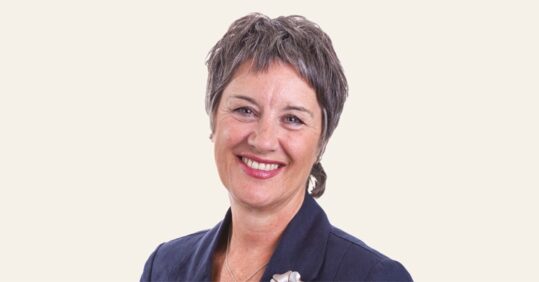We need to gently hold the executive to account

Marilyn Eveleigh argues we need to gently hold the executive to account during the Covid-19 pandemic.
In the dramatic lockdown lives we lead under Covid-19, I am simultaneously grateful, confused, frustrated and hopeful by what is happening in our rapidly changing world.
Related Article: Improving lung health one song at a time
As a country we have rallied, united by edicts and directions regarding Stay at Home-Protect the NHS-Save Lives.
Government, scientists and humanity have worked together. I’m grateful we have a society that has conformed to protect the most vulnerable. I’m also confused that some high profile leaders can apparently legitimately visit their second homes or have their hair cut when others have to endure isolation through social distancing, lockdown in overcrowded homes and suffer economic loss. Questions are inevitably being asked. A whole country is watching, waiting and wondering why – and what next?
As a society our values have been radically scrutinised. Status has a new definition – the lowest paid such as delivery drivers, supermarket shelf packers and homecare workers are now considered essential workers with bankers and celebrities taking a backseat. Values have seemingly changed when set against vulnerability and death. I’m hopeful this may support fairer remuneration when the economy settles.
Our national treasure, the NHS, is the best weapon the government has. It has attracted instantaneous funding and equipment. Trust debts have been miraculously written off and it has hugely elevated the role of nursing. Why did it take this catastrophe to make these changes?
Related Article: Nurse had to ‘freeze’ PPE during pandemic to re-use in care home, Covid inquiry hears
Imaginative solutions and novel approaches are required in any crisis. And the UK has had a national nursing workforce crisis for long enough. Now that the desperate shortage of clinicians has facilitated removing entry hurdles, upgrading students, modifying training and fast-tracking experienced returners, a willing 40,000 qualified workforce has suddenly appeared.
Well, in theory it does. The online NHS Professionals portal for returning staff is cumbersome and unfriendly. There have been numerous reports of practicing clinicians offering their services with no response from the NHS bureaucracy. It happened to me.
Having offered myself to a community NHS Trust as I’m already on the NMC register, have current enhanced DBS status, have infection control, respiratory and community experience, am fit and willing to work any shift – I did not even get an acknowledgement to my completed application. I was told it had been ‘overlooked’ and Occupational Health had to clear me; at the time of writing (13 April), I am no further forward, despite there being a continuing high level of staff absence. It felt alienating, bureaucratically complicated and misleading to me, family and friends that the NHS has a dire workforce need.
Related Article: NHSE confirms dates and eligibility for autumn Covid and flu jabs
Unfortunately the use of PPE has created distrust and anger amongst clinicians and carers. From an oscillating emerging mixed picture of acute hospitals having enough, with little in the community setting, to staff in residential homes having none, the clumsy suggestion by Matt Handcock that PPE was not being used appropriately felt like a kick in the teeth to hard working health and care staff at all levels, doing the best they could in unprecedented times. Nurses are frustrated; we need evidence-based, consistent guidance and sufficient supplies, not blame. The RCN’s Dame Donna Kinnear vocalised the insult many nurses felt.
At this time of uncertainty, our nursing leaders within and outside government, need to hold the government and the profession to account. But do it fairly. Times are tough enough.

See how our symptom tool can help you make better sense of patient presentations
Click here to search a symptom




